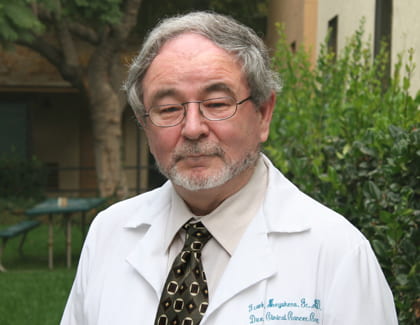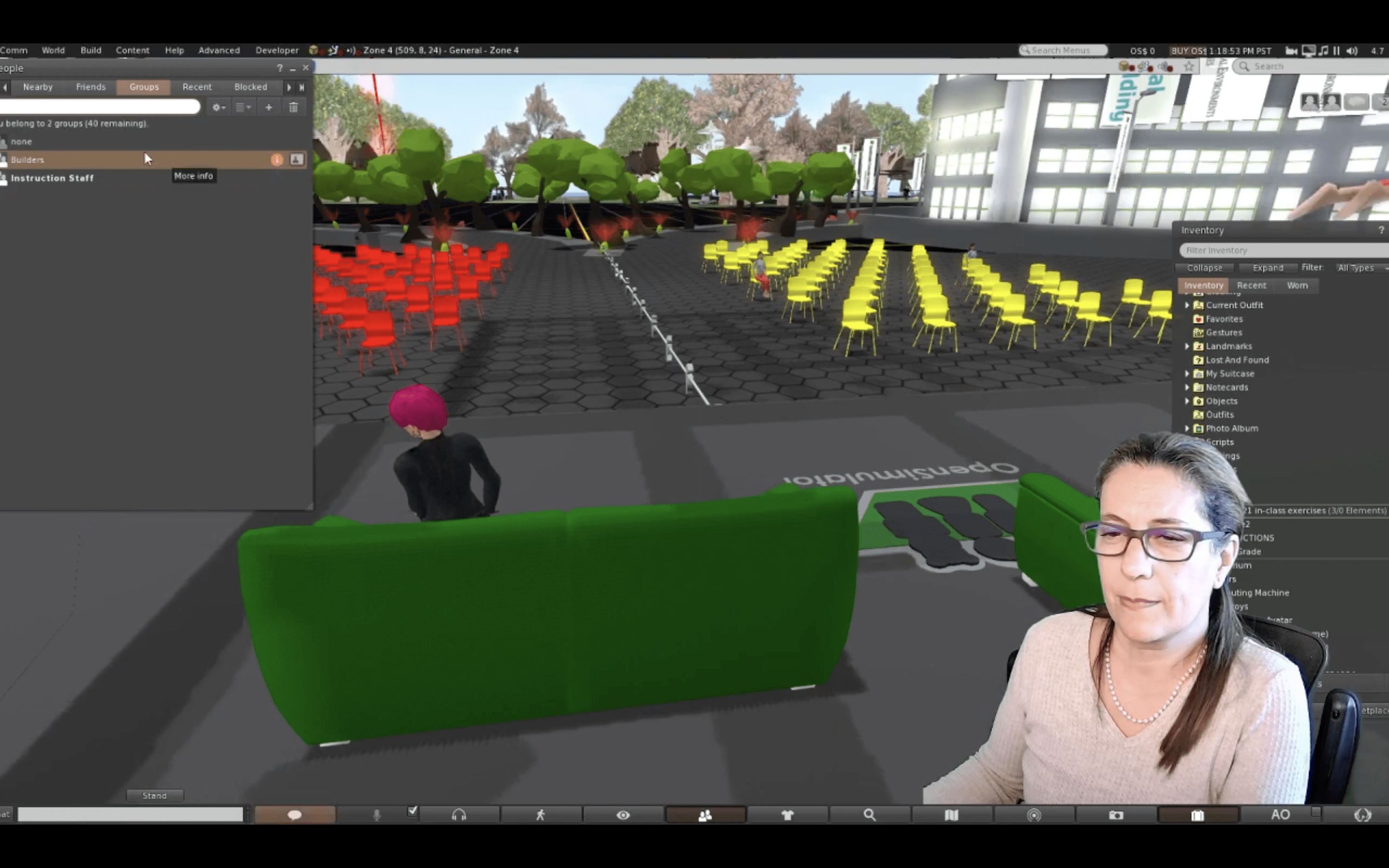Versed in healing
For poet Dr. Frank Meyskens, inspiration can strike anywhere – even the hospital construction site

As he drove to work at UC Irvine Medical Center last summer, Dr. Frank Meyskens Jr. glanced up at the then-skeleton frame of the new hospital building and spotted a brilliant magenta light. It was the glow from a welder’s torch.
“For the next three or four days, I watched it move up the floors,” he says. That’s when Meyskens, associate vice chancellor for the UC Irvine College of Health Sciences and director of the Chao Family Comprehensive Cancer Center, got an idea – for a poem.
His verse, “The Welders,” appears in his first published collection of poetry, called Aching for Tomorrow, and was inspired by his meeting with the hospital construction crew.
After spotting the welder’s fire, Meyskens contacted Ned Reynolds, senior director of planning administration, who arranged for him to meet the welders. Meyskens had lunch with the crew and Patricia Nemeth, Design & Construction Services’ director of hospital operations, and toured the building’s unfinished seventh floor – eventual home to the cancer center’s inpatient unit. He treasured the conversation, because it brought him back to his working-class roots. His father had been a plumber and a fireman, and Meyskens felt he was back among his dad and his buddies.
“The welders taught me their language, or at least the beginning of it, so a lot of the words and thoughts in that poem would not have happened except for the fact that we met and talked.”
Most of Meyskens’ poems explore how illness affects patients, doctors, nurses and families. He began writing poems in his third year of medical school – “emotional relief for the intensity of unrequited emotions.” As a med student, he was supposed to shut down his emotions; poetry provided an outlet for his feelings. He put poetry aside after his fourth year – and didn’t begin writing again until 2001.
“I had a particular patient who punctured through my Kevlar bullet-proof vest,” he says. “She was an extraordinarily tough case. We never did figure out exactly what (cancer) she had.” She was 27, and had two small children and a loving family.
“I just connected,” Meyskens says. The poem she inspired, “Ripped,” is the first in the book.
Today, Meyskens jots down words and even quatrains when they come to him, saving his serious writing for Sunday mornings, when he’s in his easy chair with “no e-mail, no phone, no noise.”
“I start early in the morning and go until I get tired, usually four or five hours,” he says. “I find it emotionally satisfying. It’s a very effective way of highlighting the doctor-patient relationship.”
